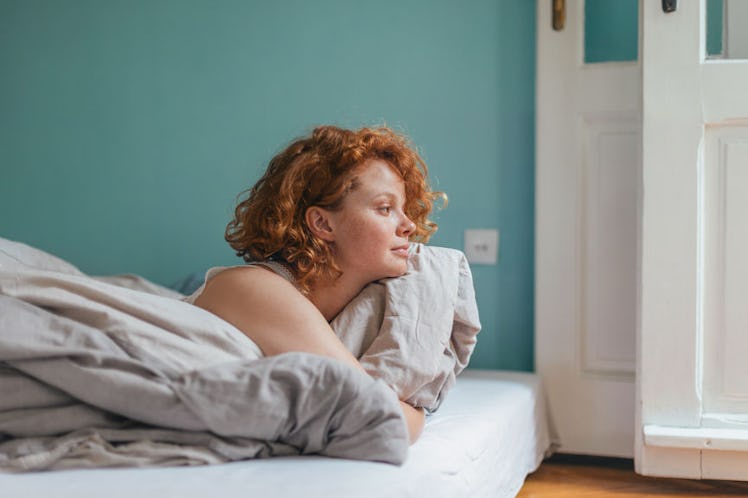
Science Says Sticking To A Regular Bedtime Benefits More Than Just Your Energy Levels
For many people, inconsistent bedtimes are a way of life. One night you go to bed at 9 p.m., the next you're under the covers at midnight, and by the time the weekend rolls around, your sleep schedule is about as unpredictable as that flaky dude who never texts back. You might think that as long as you get enough sleep, consistency doesn't really matter — but, according to new research, your bedtime affects your health in important ways, so consistency might be key when it comes to staying well-rested and energetic in the long run.
The new study, which has been published in the journal Scientific Reports, found that the consistency of your sleep schedule (including both the time you go to sleep and the time you wake up) plays a crucial role in more than just your energy levels and your ability to not feel like a zombie when you roll out of bed. Researchers from Duke Health and the Duke Clinical Research Institute studied the health and sleeping habits of nearly 2,000 older adults over the course of about a decade, ScienceDaily reports. Using special devices that tracked the subjects' sleep/wake schedules down to the minute (to show that even the slightest change in a sleep schedule might be associated with a change in health), the researchers found that irregular sleepers experienced more lethargy during the day and were less active overall — which is sort of expected, right? But here's where things got a little more interesting: According to the research, an inconsistent bedtime was found to be associated with reports of stress, and even depression, "both of which are tied to heart health," per ScienceDaily.
In other words, getting to sleep on time doesn't just keep your brain from feeling foggy or your mood from feeling sour; it might protect your health on a much larger scale. However, as Jessica Lunsford-Avery, Ph.D., an assistant professor in psychiatry and behavioral sciences and lead author of the study, pointed out in a statement, this research doesn't necessarily conclude "that sleep irregularity results in health risks, or whether health conditions affect sleep." Rather, Lunsford-Avery said, "all of these things [may be] impacting each other."
Regardless, though, the researchers found that bedtime and wake-time regularity was the best measure for predicting someone's heart and metabolic disease risk, so when all is said and done, it's probably still a better idea to aim for a consistent sleep schedule that works for your lifestyle, rather than try to get more hours of sleep overall.
Of course, creating and maintaining a consistent sleep schedule might be tricky at first if you're not used to it, but don't worry — there are plenty of ways to help your body adapt to your new and improved snoozing routine.
For starters, you can try cutting down on caffeine and alcohol if you feel like these things are messing with your sleep patterns. Plus, spending more time outside each day will help to familiarize your body with natural versus artificial light, and as a result, this might make it easier to fall asleep and wake up at times that make sense with your schedule.
Also, though you'll want to try to stay off your phone before bed and for as long as possible in the a.m. when you first wake up, apps like SleepScore and Sleep Cycle can help you understand your body's natural sleep/wake cycle, and they can even recommend schedules that fit your lifestyle so you can feel your best day in and day out.